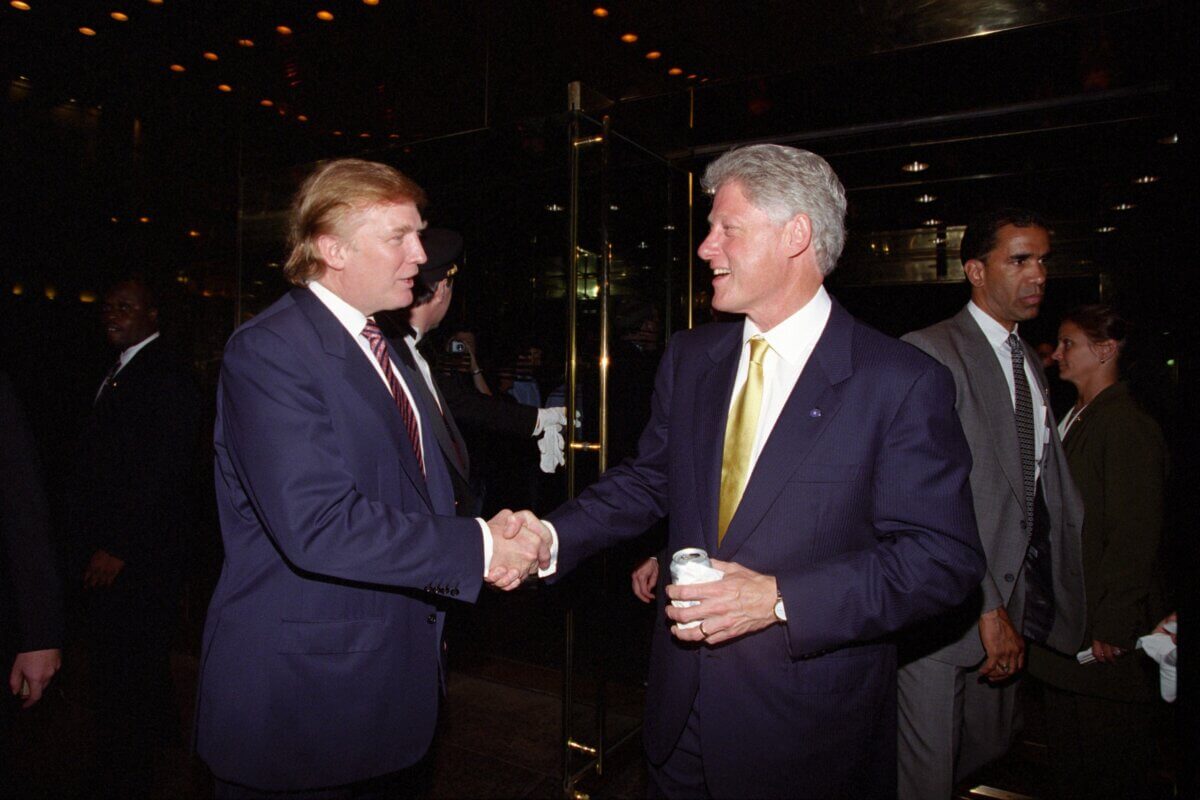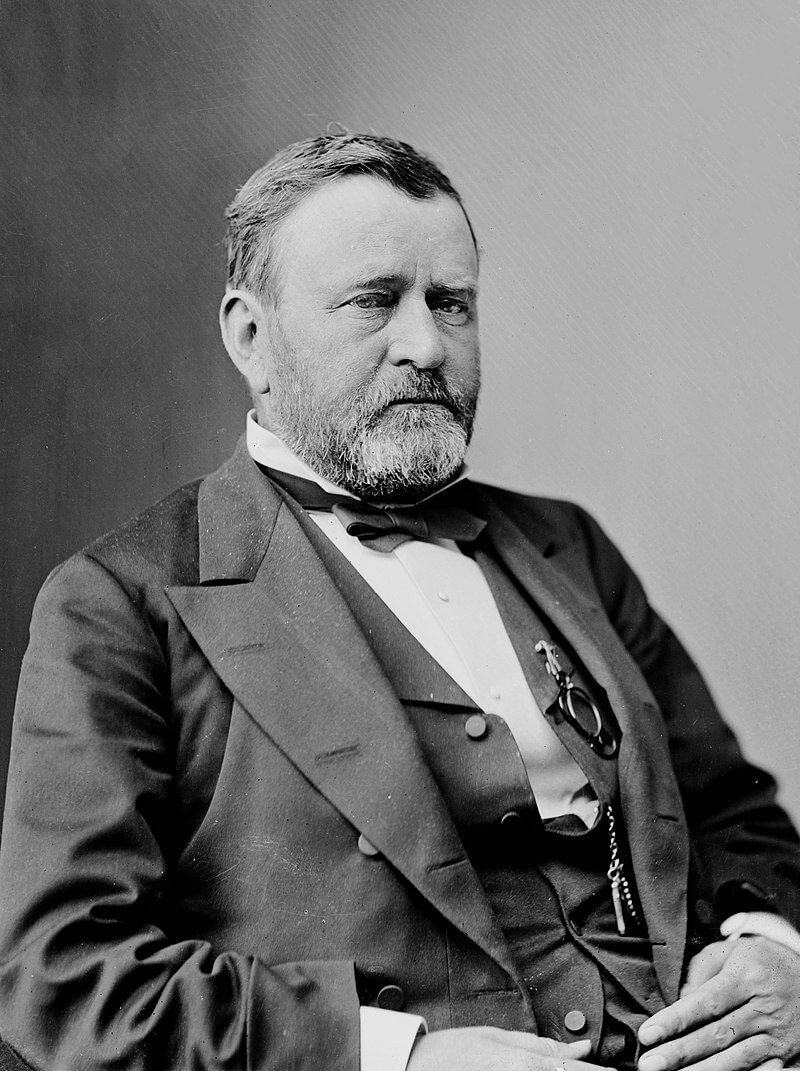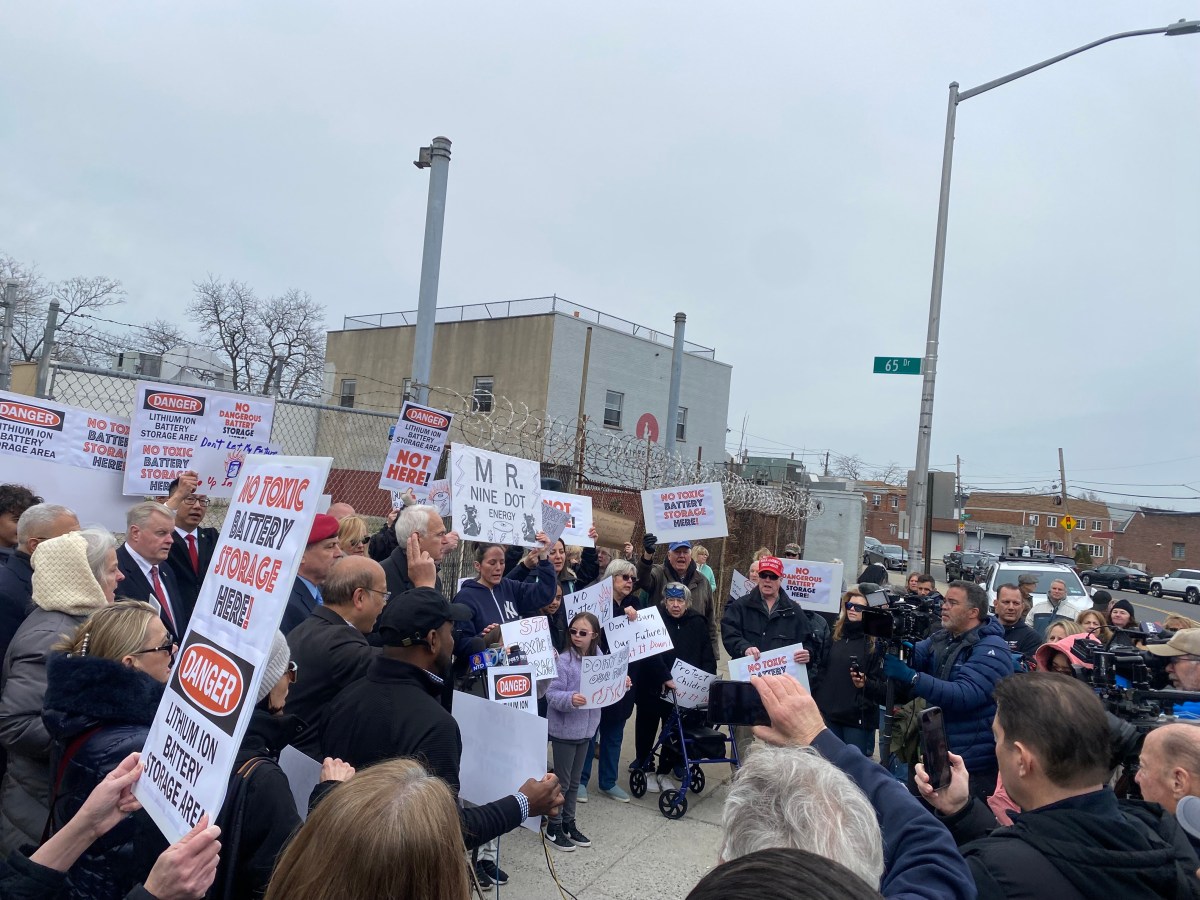Nothing like this has ever happened before.
Former President Donald Trump’s arraignment in Manhattan on Tuesday for his alleged role in a hush money scheme continued his streak of making dubious American history, as he became the first former or sitting commander-in-chief ever to be brought up on criminal charges.
Over the past half-century, Americans have endured one political scandal after another involving a president, sitting or former — from the Watergate scandal that derailed Richard Nixon’s presidency in 1972; to the Iran-Contra affair of the 1980s that put a black mark on Ronald Reagan’s tenure; to the Monica Lewinsky affair in 1998 that led to the impeachment of President Bill Clinton; to Trump being impeached twice — once for an alleged extortion attempt with Ukraine in 2020, and again for inciting the Jan. 6, 2021 insurrection on the U.S. Capitol.
Nixon was on the path toward impeachment in August 1974, after the House Judiciary Committee approved, in a bipartisan manner, charges of obstruction of justice and abuse of power for the president’s alleged efforts to cover up the investigation into the Watergate burglary of the Democratic National Committee’s headquarters.

But before the full House could vote on the articles, Nixon resigned the presidency. His successor, Gerald Ford, then delivered a “full, free and absolute pardon” of Nixon in September 1974, ensuring that Nixon would never face prosecution related to Watergate.
At the time, President Ford explained to the nation that pardoning Nixon was the only path forward from the scandal, and that he believed the prosecution of a president would only further divide the country.
“During this long period of delay and potential litigation, ugly passions would again be aroused,” Ford said in his Sept. 9, 1974 address. “And our people would again be polarized in their opinions. And the credibility of our free institutions of government would again be challenged at home and abroad.”
Ford’s pardon put an end to the question of whether Nixon would face justice for his role in Watergate — though the decision has been heavily criticized and debated ever since, with opponents arguing that it set a bad precedent of putting a president above the law.

Almost a quarter-century later, President Clinton was impeached for charges including perjury, obstruction of justice and abuse of power related to his extramarital affair with Monica Lewinsky, a former White House intern.
Clinton expressed contrition for the scandal, but resisted calls for his resignation — and, along with his supporters, slammed the impeachment proceedings against him as being political.
The first president since Andrew Johnson to face an impeachment trial, Clinton was ultimately acquitted of the charges against him in February 1999. An impeachment trial isn’t, however, a criminal proceeding — but Clinton himself was never charged with a crime related to the Lewinsky affair.
And then there’s Donald Trump.
Unprecedented accusations
His first impeachment occurred in December 2019, when a party-line vote in the Democratic-led House of Representatives charged him with obstruction of justice and abuse of power for allegedly attempting to withhold aid from Ukrainian President Volodomyr Zelensky in exchange for getting campaign dirt on then-former Vice President Joe Biden, whom Trump saw as his main rival in the 2020 presidential election.
Just one Republican, Utah Senator Mitt Romney, voted along with 48 Democratic and independent senators to convict Trump, far short of the two-thirds majority needed to remove a president from office.
Trump would wind up facing Biden in, and losing, the COVID-ridden 2020 presidential election. But the worst was yet to come.
After the Jan. 6, 2021 attack on the U.S. Capitol, the House speedily voted to impeach Trump a second time, for incitement of insurrection. Trump’s lies about the election being stolen from him helped fuel an angry mob of his supporters, white supremacists and militia members into storming the Capitol in a brazen effort to interrupt the certification of the election results, causing the first violent interruption of the peaceful transfer of power in American history.
Ten Republicans joined the Democratic House majority in approving the article of impeachment; many of those constitutional Republicans would either be ousted by Trump acolytes in their party primaries, or choose not to run for re-election in 2022.
The impeachment trial took place after Trump formally left office on Jan. 20, 2021, marking the first time a former president faced impeachment, leading to a debate over the consequences one would face if convicted. Seven Republican senators joined 50 Democratic/independent senators in voting Trump guilty of the article — 10 votes shy of a conviction that would have barred Trump from ever seeking elected office again.
Trump, of course, declared himself a presidential candidate last fall despite the two prior impeachments and an array of ongoing investigations against him — including a federal probe into the improper storage of classified documents at Trump’s Mar-a-Lago estate in Florida, and an investigation in Georgia into election interference after he asked state officials, in a recorded call, to “find” enough votes to be declare him the winner of the Peach State in the 2020 election.
Not the first president arrested

Oddly enough, however, Trump was not the first president to be arrested. In 1872, Ulysses S. Grant wound up being booked in Washington, DC on charges that he was speeding with his horse and buggy down a street.
In an NPR interview, historian John Marszalek said that Grant — then in his first term in office — wound up being stopped by the same D.C. police officer, William West, on two consecutive days for the exact same offense. But Grant didn’t call his arrest a “WITCH HUNT” or rail against the officer for doing his job.
“West stops him again and says, I’m going to have to arrest you. So he takes him to the station. West is a little embarrassed because, after all, this is the president of the United States. But he did his duty,” Marszalek said in the NPR interview. “Grant said, I know I was speeding. You should arrest me. Don’t feel badly about it.”
It turned out that President Grant didn’t appear at the trial that followed, forfeiting the $20 bond. Yet his arrest remained a secret until West told a Washington, DC newspaper about it in 1908, according to Marszalek.






























